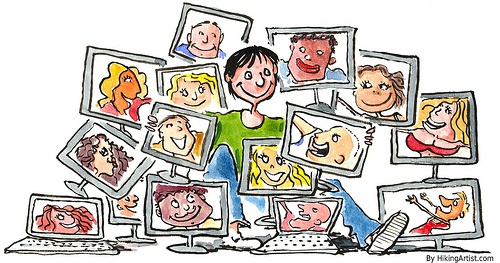
Literary Agents in the Digital Publishing Age.
Traditionally, an agent was the indispensable ally of the author in the elusive chase for a publishing contract. This is still very true for the Big 6 and for a number of smaller publishers.
This means that finding an agent was the first hurdle to overcome for a writer wishing to see his words in print. Yet finding an agent is not as easy as it sounds. Statistics from literary agencies are hard to come by, but here are some as to the percentage of queries that translated into a deal with an agency in 2010:
Lowenstein & Associates: 0.05% out of over 10 000 queries
Wordserve Literary: 0% out of over 10 000 queries
Kristin Nelson Agency: 0.09% out of over 36 000 queries
These statistics, as dispiriting as they are, are likely to get worse. With the advent of digital publishing, some agents are turning to signing writers who already proved their mettle through self-publishing.
But why should a writer who succeeded perfectly well on his own want an agent. Well, an agent is the perfect ally of a successful self-published writer to land translation deals, audio book deals or movie deals. Or even a contract with one of the Big 6. Large publishers have tools to handle distribution and marketing that are way beyond the abilities of an individual. The loss in royalties is to be weighed against the gain in exposure.
The writer is already swamped by marketing activities that eat away his writing time, so if he also has to handle all these extra tasks, he’s unlikely to ever write another line and would soon find himself out of business. Amanda Hocking recent $2 million publishing deal with St Martin’s Press will enable her, as she says, to reach the 85% of the population that still does not have an e-reader. Yet, she was approached directly by the publisher, without any agent in the middle. She now has an agent and can devote more of her time to write.
In view of the sheer time it takes to turn down thousands of queries, some literary agents are now investing their time in approaching writers rather than the other way round. This is still a small minority of agents, but let’s keep in mind that digital publishing is a young industry and that the publishing industry is ancient enough that it takes its time to change century long traditions.
Don’t risk missing our contests or promos. Like us on Facebook or follow us on Twitter!